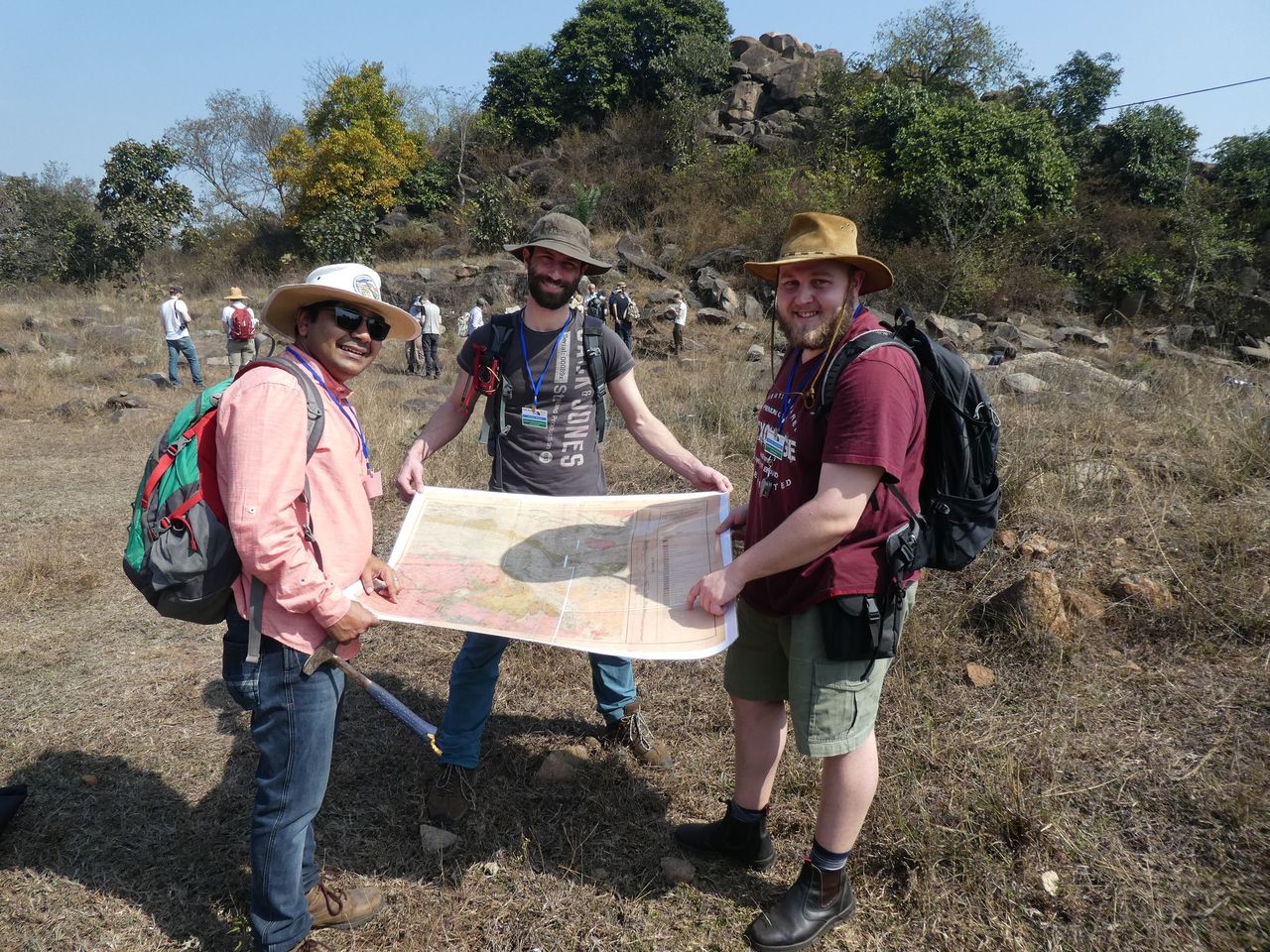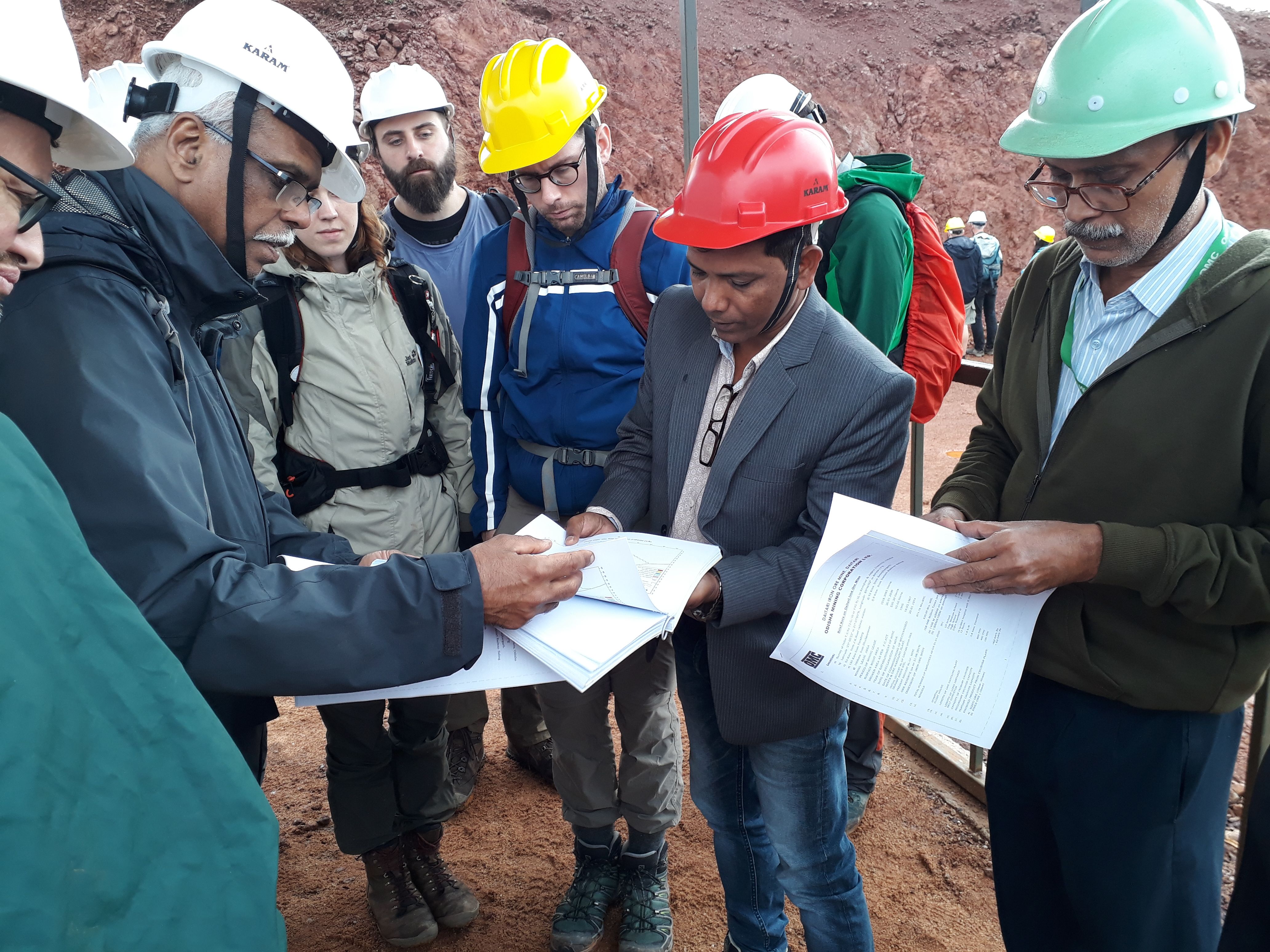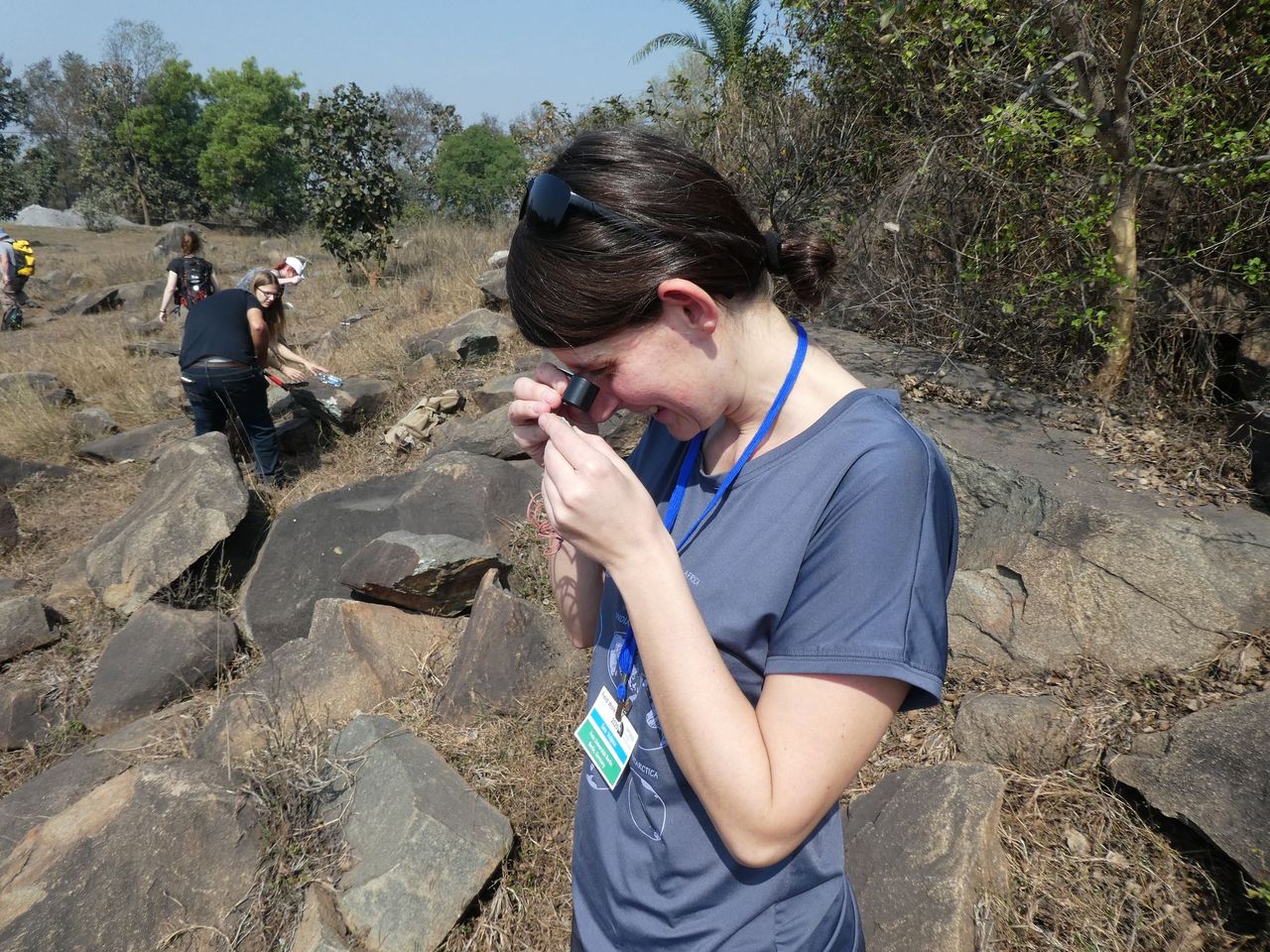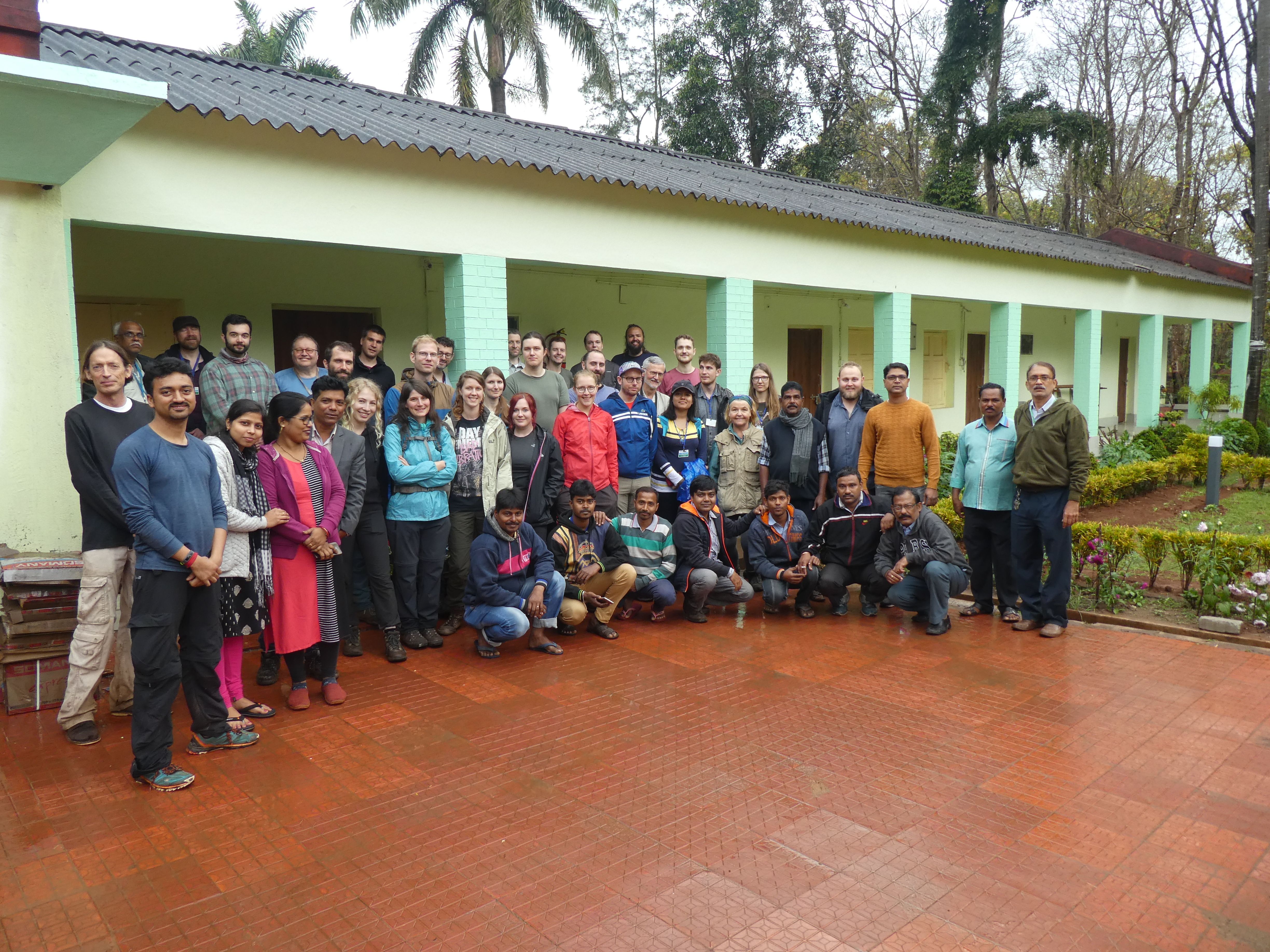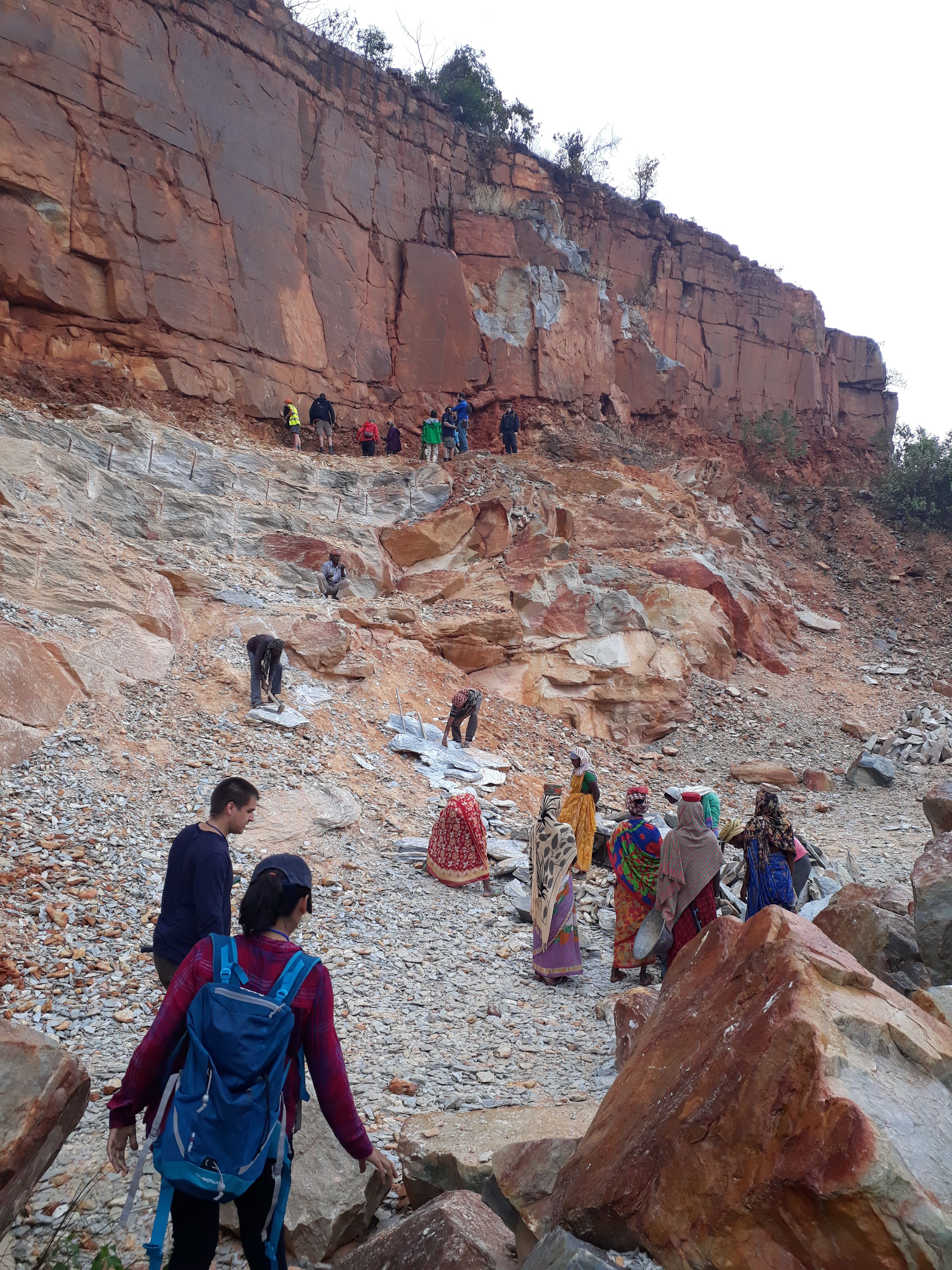SPP 1833 researchers studied the unique Archean geology of the Singhbhum Craton
Archaean granite‐greenstone terrains are preserved as ancient nuclei in every continent and provide valuable insights into the crustal growth and geodynamic processes operative during Earth's early evolutionary history. Well‐preserved Palaeoarchaean (3.6–3.2 Ga) to Mesoproterozoic (ca. 1.6 Ga) supracrustal successions have been visited by the SPP 1833 in South Africa, Australia and Canada. This year’s field workshop led the group of 34 young researchers and supervisors to the Singhbhum Craton in India, west of Kolkata.
In contrast to other cratonic blocks, the Singhbhum cratonic block bears an almost continuous Palaeoarchaean to Mesoproterozoic geological record. Starting in Jamshedpur and ending in Jajpur, the group inspected a north-south geological transect through this succession.
The first part of the trip was led by Rajat Mazumder (German University of Technology in Oman), who has been working intensively for several years on the geology of the northern Singhbhum craton. Tonalites, granites and granodiorites (OMG, OMTG) were inspected as well as sedimentary successions (banded iron formations, cherty quartzites, sandstones, conglomerates) and volcanic rocks (e.g., komatiites with spinifex-zones , pillow basalts, felsic lavas and tuffs).
Axel Hofmann (University of Johannesburg) took over for the second part of the field workshop. He introduced the group into the Archean geology of the southern part of the Singhbhum craton around Keonjhar and Jajpur. Here, the group had the possibility to visit one of a few known Archaean palaeosoils worldwide at Keonjhar. Another focus of this part of the trip was on the Daitari greenstone belt and associated banded iron formations that are of economic interest. Within this framework, the SPP group visited the Odisha Mining Company mines near Daitari..
All participants took the opportunity to take samples for their own research projects. Furthermore, the whole group benefitted from the scientific and personal exchange at all academic levels.
One of the participants, Dr. Ashley Martin, provided a personal report about the field workshop. Read it here
